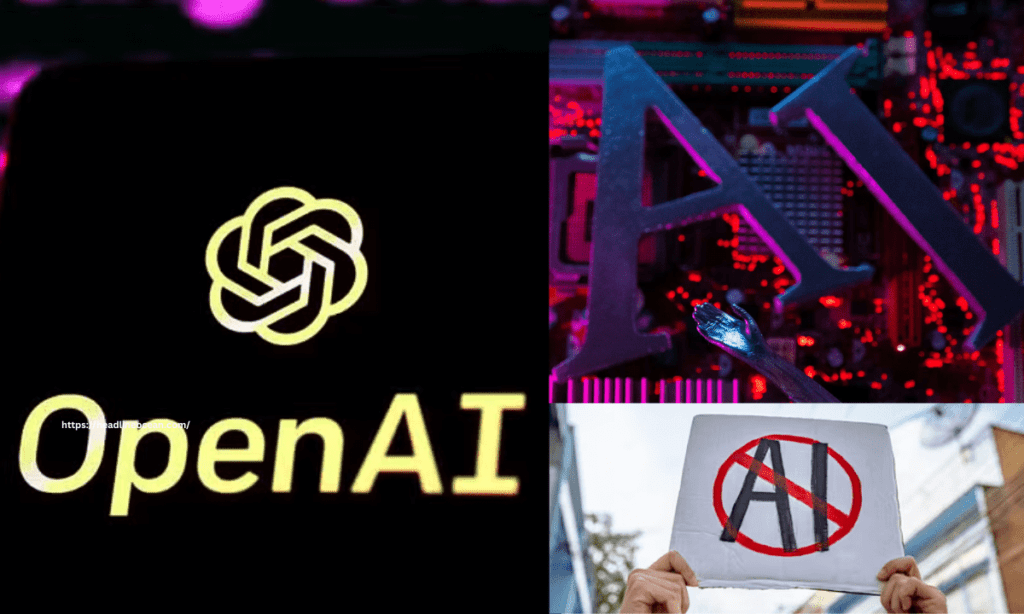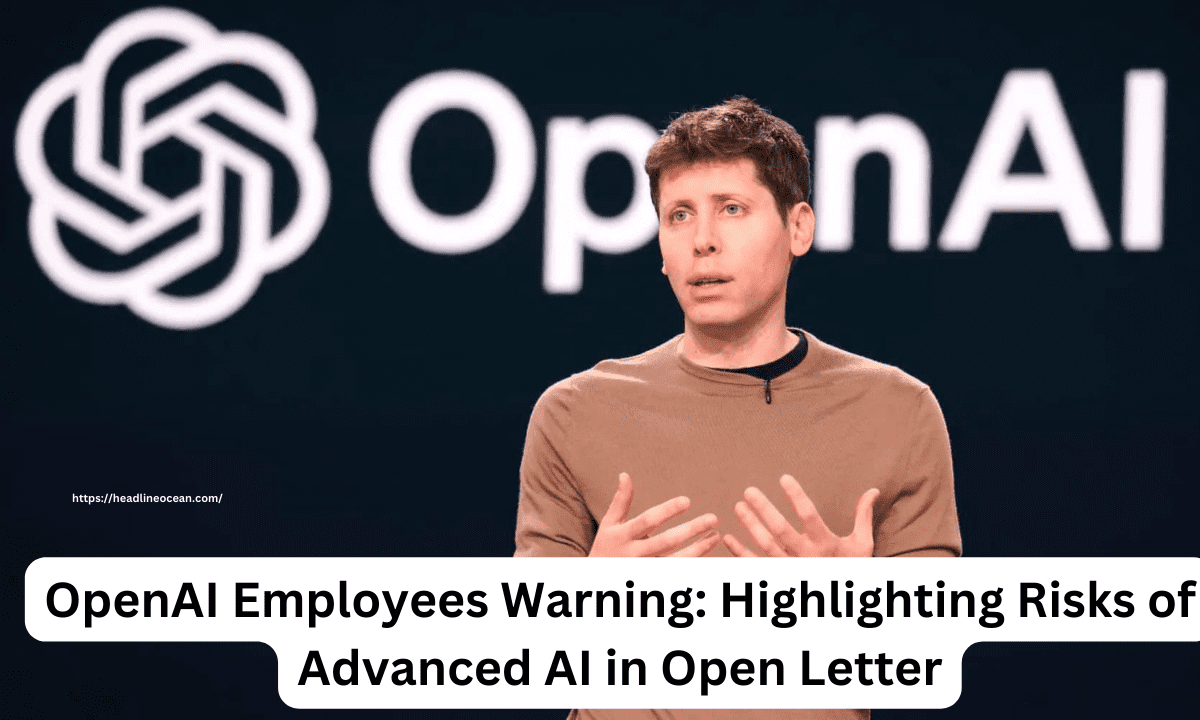In an incident that has shook the AI community, a number of current and former OpenAI employees wrote an open letter outlining their worries about the potential hazards of advanced artificial intelligence (AI) and what they see as a lack of transparency and supervision within the firm. While acknowledging AI’s enormous potential for good, the letter cautions against major hazards such as greater inequality, manipulation through disinformation, and even the chance of losing control of AI systems entirely.
The letter, headed “A Right to Warn about Advanced Artificial Intelligence,” was signed by 13 people, including 11 from OpenAI, the firm that created the popular big language model ChatGPT, and two from Google’s DeepMind. Six of the signatories preferred to remain nameless due to worries about possible reprisal.
What are the particular issues expressed by OpenAI employees?
The letter’s main concerns revolve on four major issues:

- Downplaying of Risks: Employees argue that OpenAI, and other AI businesses in general, prioritize financial gain above publicly addressing and mitigating the possible hazards involved with sophisticated artificial intelligence.
- Lack of Transparency: The letter critiques the inadequate information shared with the public about the real capabilities and limits of these AI systems, which impedes informed conversations and the creation of appropriate protections.
- Insufficient oversight: Employees are concerned that present supervision procedures are inadequate to oversee the fast-developing area of AI. They advocate for more stringent restrictions and independent reviews.
- Stunted Disagreement: The letter condemns the use of non-disparagement agreements and confidentiality restrictions, which may prohibit employees from voicing concerns about possible hazards either internally or publicly.
Why are these issues important?
The advantages of AI are clear. From changing healthcare to simplifying businesses and boosting scientific research, AI has the potential to drastically enhance our lives. However, like with any strong technology, there are uncontrolled Hazards
- Increased Inequality: Artificial intelligence may worsen current social and economic divisions. Biases in the data used to train AI systems can result in biased outputs, further marginalizing disadvantaged communities in areas such as employment and access to resources.
- Weaponization of AI: Malicious actors might weaponize AI by developing autonomous weapons or employing AI-powered disinformation campaigns to stir conflict and destroy democracies.
- Loss of Control: As AI systems get more complex, the danger of losing control of them becomes a legitimate issue. This raises the possibility of unforeseen repercussions, perhaps catastrophic in nature.
What are the OpenAI employees arguing for?
The letter suggests a four-pronged strategy to address these concerns:
- Transparency and Open Communication: OpenAI and other AI businesses should be more open about their systems’ capabilities and limits, encouraging a public discussion about the possible hazards and advantages.
- Stronger Whistleblower Protections: Employees who express concerns about AI hazards should be protected from retribution, enabling for an open flow of knowledge and the detection of possible problems.
- Independent Oversight: To enable responsible AI research and deployment, comprehensive oversight mechanisms, perhaps including independent commissions with expertise in AI and ethics, must be established.
- Culture of Open Criticism: Companies ought to create a work atmosphere where workers feel free to raise concerns about potential dangers without fear of retribution.
What was OpenAI’s response?
OpenAI recognizes the significance of the problems stated in the letter. In a statement, the corporation underscored its dedication to safety and responsible AI development. It emphasized existing channels for staff to voice concerns, such as an anonymous integrity hotline. OpenAI also emphasized its reliance on scientific approaches to manage risks and showed a commitment to continue collaborating with governments, civic society, and other stakeholders in AI research.
To ensure ethical and secure AI development, an integrated approach is required. This includes:
- Increased Public Awareness: Educating the public about AI’s potential and limits is critical. Open talks about potential concerns can serve to promote responsible usage and development.
- Stronger Regulatory Frameworks: Governments must provide clear norms and restrictions for AI development and implementation. These policies should encourage responsible development, eliminate algorithm bias, and prioritize human monitoring.
- Collaboration among developers, experts, and policymakers: Open communication and collaboration among AI developers, academics, ethicists, politicians, and the general public are critical. This promotes a comprehensive grasp of the technology and its possible repercussions.
The Road Ahead: Balancing Innovation and Responsibility
The OpenAI letter serves as a wake-up call to the AI community and the general public. As AI evolves at an unprecedented rate, ensuring responsible development and avoiding possible hazards is critical.
Here are some important measures to consider:
- Creating Ethical foundations: Establishing clear ethical foundations for AI development is critical. These frameworks should address concerns about bias, openness, accountability, and safety.
- Strengthening Regulatory organizations: International collaboration is critical for establishing strong regulatory organizations capable of successfully overseeing AI development and deployment.
- Public Education and Engagement: Educating the general public about AI’s potential and limitations encourages informed debate and assures responsible technological adoption.
The future of AI provides enormous opportunities for constructive development. By openly discussing the dangers and applying ethical development processes, we can ensure that AI benefits mankind as a whole.
For More Information, Keep An Eye On: Headline Ocean

